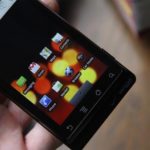
Rice University has joined Oxford University and The Open University in contributing free, open eBooks to the iTunes U web site, using the burgeoning EPUB format that lets students read eBooks on a variety of eReader devices becoming more prevalent in higher education.
Rice’s contribution of 18 of its most popular titles came from the Houston-based university’s open education program, Connexions, which logs about 2 million visits every month, according to an Oct. 29 university announcement.
The open eBook additions from Oxford, Rice, and The Open University—an online school based in the United Kingdom with more than 250,000 students—will be accessible not only on eReaders like Apple’s iPad and the Barnes & Noble Nook, but also mobile devices like the iPhone and Android-based smart phones because they are printed using the EPUB format.
The Open University has become an iTunes U staple in recent years. The school claims to be the first to reach 20 million downloads on iTunes U, tallying more than 27 million iTunes downloads to date. Data show more than 312,000 downloads of content from The Open University on the iTunes U site every week.
Adding electronic books and articles that are accessible not only on a laptop or desktop, Rice officials said, has become a priority for purveyors of web-based educational resources.
“The demand for free, high-quality educational texts and teaching materials is greater than ever, and people increasingly want to access that material on mobile devices,” said Joel Thierstein, executive director of Connexions at Rice.
Rice’s open eBook offerings on iTunes U include a variety of subjects, from books on programming fundamentals to basic music theory to collaborative statistics. The university has been a leader in the EPUB format since August, when the entire Connexions eBook collection—more than 17,000 works—was made available via the EPUB format, according to the school.
The Open University’s iTunes U contribution will be in two parts: 100 open eBooks were placed on iTunes in October, and another 200 will be included by the end of the year, according to a university release.
Martin Bean, vice chancellor of The Open University, said in a statement that the school avoids eBooks that are simply a textbook’s words in electronic format. Instead, Bean said, the university’s EPUB-format works would include video and audio to supplement text-based lessons.
“We do not simply rework existing material and old-style textbooks into an electronic format, but design carefully thought-through, interactive features that give the best all-around learning experience,” he said. “This really helps to bring subjects to life and simplifies things for students, as you don’t have to be online or carry lots of different materials.”
Making academic material available on popular mobile devices could become a goal for colleges and universities worldwide hoping to expand their eBook offerings: An international market research firm predicts a 55-percent jump in smart-phone sales this year.
The mobile device market analysis, released this fall by International Data Corp. (IDC), is welcome news to researchers who have predicted a jump in smart-phone use for educational purposes, because college-aged men and women are among the likeliest to use the technology.
There will be about 270 million smart phones—such as the iPhone, Android, and BlackBerry—shipped during 2010, a major jump from the 173 million sold in 2009, according to IDC’s projections.
More than 119 million smart phones were shipped in the first half of 2010, up from the 77 million shipped in the first six months of 2009, according to the report.
A national survey of 500 students nationwide conducted by a researcher at Ball State University in Muncie, Ind., showed that smart-phone usage among college students increased from 27 percent in February 2009 to 48 percent in July 2010.
“The way students choose to learn is changing,” Bean said.
- Research: Social media has negative impact on academic performance - April 2, 2020
- Number 1: Social media has negative impact on academic performance - December 31, 2014
- 6 reasons campus networks must change - September 30, 2014


Comments are closed.